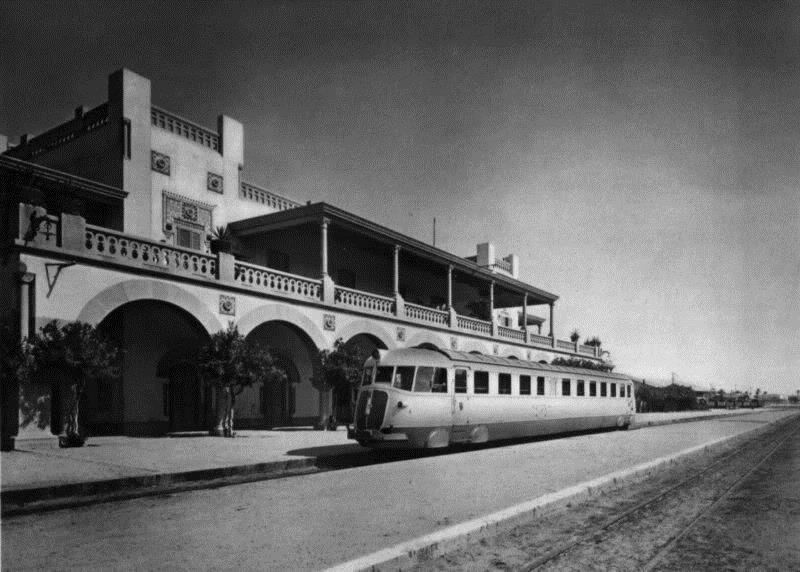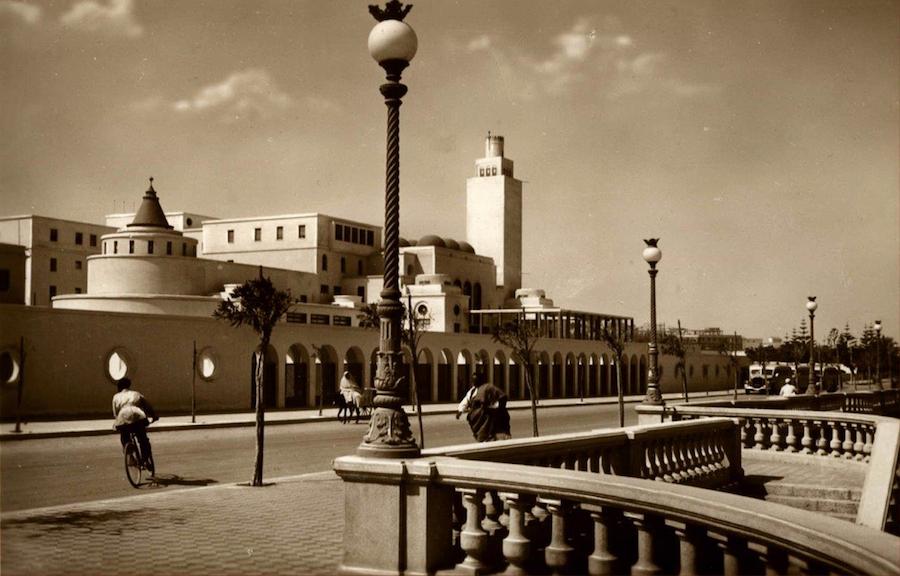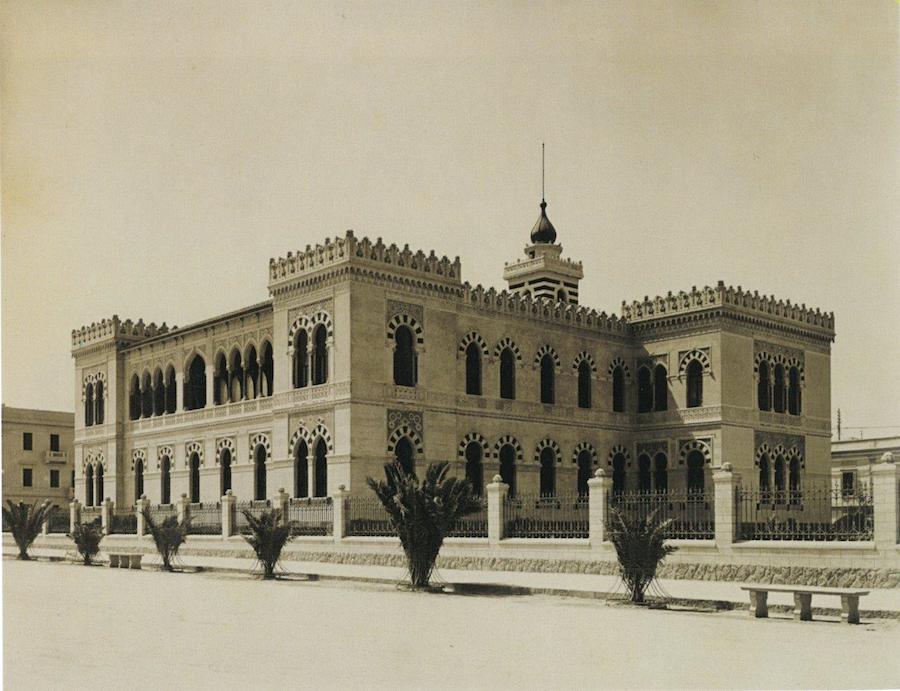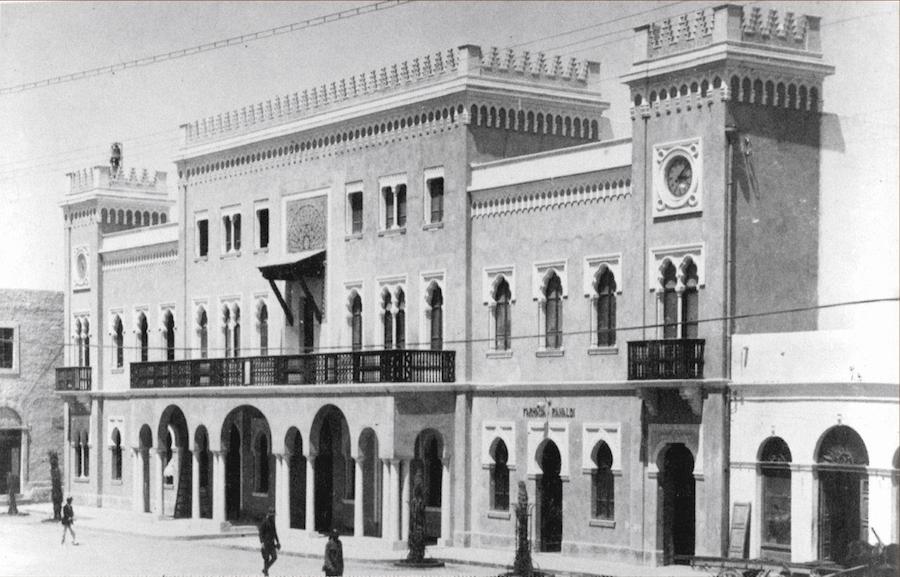By Rubens Piovano.

Tripoli, 8 February 2014:
Libya’s historic buildings have suffered years of neglect and still lack proper protection, meaning they are . . .[restrict]at risk of further damage. A recent international seminar entitled “Managing And Conserving Historic Cities In Libya” at the Libyan National Archives, brought together heritage experts in Tripoli to discuss how these could be best preserved and protected.
There are a number of steps that can be taken to help preserve what is left of Libya’s buildings from the Italian Colonial period which follow UNESCO guidelines, according to speakers at the conference. Creating a digital archive of urban and rural architecture of 20th-century Libya and drawing up a list of buildings to be put under protection would be an important start.
Training architects to specialise in how to work on redesigning period properties, and technicians on up-to-date methods of conservation and rehabilitation of buildings are other areas promoting the preservation and maintenance of historic buildings. These were amongst the final recommendations put forward at the closing session of the seminar.
Increasing the awareness of the population regarding national heritage, through exhibitions, competitions, and education, was another suggestion. Exploring new ways to make historic buildings economically viable was also discussed, including special developing tourist itineraries and linking Libyan heritage into a Euro-Mediterranean network.
“We all hope that this seminar can convince those who are in charge of historic buildings that returning them to their previous splendour is a powerful source of income,” said Director of the Italian Cultural Institute, Rubens Piovano. “Our aim is to attract tourists to Libya not only for the majestic beauty of the deserts and the fascination of the archeological sites but also for the architecture of its cities”.

Following a speech by Deputy Culture Minister Abdulrazag Al-Ibara, the event started with a Memorandum of Understanding being signed between the Libyan Board of Architects, and the Italian counterpart Consiglio Nazionale degli Architetti.
“The agreement offers a good opportunity for Libyan architects to share experiences and reach international visibility,” said architect Ghaleb Gheblawi who, with Walter Baricchi, signed the agreement on behalf of their respective institutions. “It includes the possibility for some young Libyan architects to be trained in Italian studios and work on common projects”. Other goals of the collaboration include exchanging researchers and other professionals as well as organising regular seminars.
“The main scope of this conference was to present case studies and explore regulations and tools for the conservation and management of historic buildings and urban complexes from the first half of the 20th century across Libya,” said head of UNESCO’s Libya office Lodovico Folin-Calabi.
Urban developments in Libya in the first half of the 20th century was the focus of several lectures. Manager of Tripoli’s Old Town, Usham Bash Imam, also spoke about the legal framework of architectural conservation in Libya. Current laws and regulations are still insufficient to protect its heritage, he said, leaving structures in the Old Town at risk.

The Libya Board of Architecture expressed concerns about the lack of maintenance of Ottoman and Italian Colonial buildings in Libya, treasures that deserve be better known by Libyans. These, they said, should be re-evaluated and preserved properly for future generations to see and enjoy. Insufficient legal protection, private interests and improper use were some of the main factors that put an impressive number of interesting historical buildings at risk.
Numerous Libyan architects, members of the Association of Libyan Graduates in Italy and students attended the two-day seminar, which also had good coverage on Libyan television networks. Professors, architects and researchers from Greece and France also attended, speaking alongside Libyan experts. All the participants had the opportunity to visit the Old Town and visit colonial buildings, as well as being received by the head of Tripoli Local Council Sadat Elbadri.
The seminar was organised and sponsored by the Italian Cultural Institute, the Libyan Board of Architects, the Italian National Council of Architects and the Foundation of Tripolitanian Heritage, in collaboration with the Ministry of Culture of Libya, Tripoli Local Council, the Authority Management of Historic Cities. The event was held under the auspices of UNESCO.
Rubens Piovano is the Director of the Italian Cultural Institute in Tripoli.









